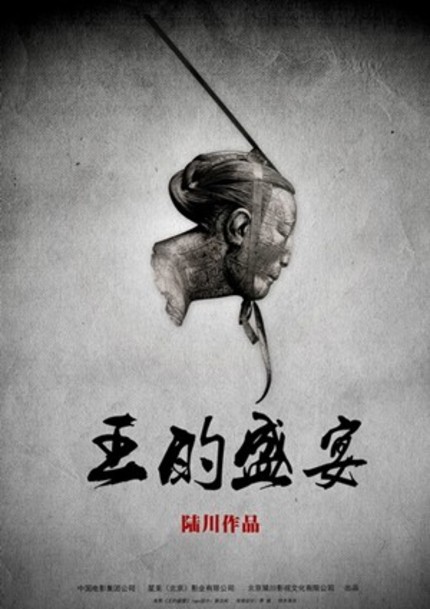Udine 2013 Review: THE LAST SUPPER Filters Bloody Power Struggles of Ancient China Through A Fragmented Mind

In theory at least, this style has the potential to give the epic story a more intimate dimension, emphasize the emotional consequences of major historical events and even explore the nature of storytelling and history by using an unreliable narrator. Unfortunately, while Chuan clearly attempts all of these things, cramming 60-something years of history into a series of fractured jumps between past and present instead proves mostly confusing, and robs much of the film of any context or narrative momentum.
Chuan seems aware of this problem, and as a result, he employs voiceover, and even on-screen titles identifying each character in order to help the audience keep up. And at this point, I must admit a cultural disadvantage -- despite that Liu's rise to power is one of the most well-known in Chinese history, and one which has been oft-explored in their cinema, I went into this film still mostly ignorant of all the in's and out's. Those more familiar with Chinese history may have an easier time.
But, when the film finally shows its hand, which isn't all that complicated, the first hour seems even more needlessly confusing than before. The problem is mostly a result of the style of storytelling, which purposely teases the audiences with names and fragments of events and then waits far too long to pay them off. Liu's narration will introduce a character and then say something like, "many years later, we became enemies." Flash forward to many years later when they are enemies -- we aren't told why -- and begin a story set in that time period. Later, we find out why they became enemies and what the stakes were, but without that information, the former scene has no resonance. This is all doubly difficult to invest in with so many emperors, allies, ministers, wives and concubines seemingly involved. But maybe I just don't have a head for politics.
In any case, a detailed plot synopsis is out of the question. The film is mostly about the alliances that form and break between Liu and his two rivals, Xiang Yu and Han Xin. About halfway through, Liu's wife emerges out of nowhere as a Lady Macbeth-style character, spurring him to more and more immoral acts in order to guard the power that he's gained. In fact, during the last thirty minutes, the film settles into a fairly straight-forward and effective combination of Macbeth and King Lear. It's absorbing not only because we finally have enough information to appreciate the universal, still-relevant themes about power and ambition, but also because of Chuan's unique style.
Up until this point, the film is only absorbing in occasional spurts thanks to Chaun's fierce direction. Rather than simply veering between epic wide shots and hand held battle scenes like so many other historical epics, Chuan employs subjective cameras, many closeups, and often, ultra-wide lenses, all of which give the film an intense, intimate feel that's rare for the genre. If only Chuan could have applied this style to a film that shared as much structurally as it did thematically with Shakespeare. Or perhaps it would have been interesting if he abandoned the narrative even further and focused on the sensations and emotions of a deranged man looking backwards.
Unfortunately, Chaun straddles an awkward middle ground, and even intense angles and beautiful cinematography can't make up for the fact that nearly an hour and a half of the film is at best, confusing, and more often, dramatically intert. Perhaps the meandering fragments would have meant more to me if I was more familiar with the story going in, but at the same time, I'm positive there was a way to tell this story in a way where my historical ignorance wouldn't have been an issue.

Do you feel this content is inappropriate or infringes upon your rights? Click here to report it, or see our DMCA policy.





